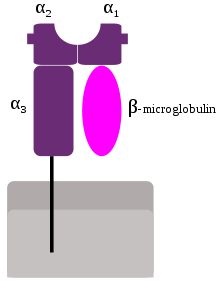I’ll focus this thread on clinical factors and will try to dive into cytogenetics/molecular biology at a later time.
This is my first "tweetorial", so any input/advice/commentary is welcome! #mmsm
1/15
1. Albumin
2. Beta-2-microglobulin (B2M)
3. LDH
4. Cytogenetics
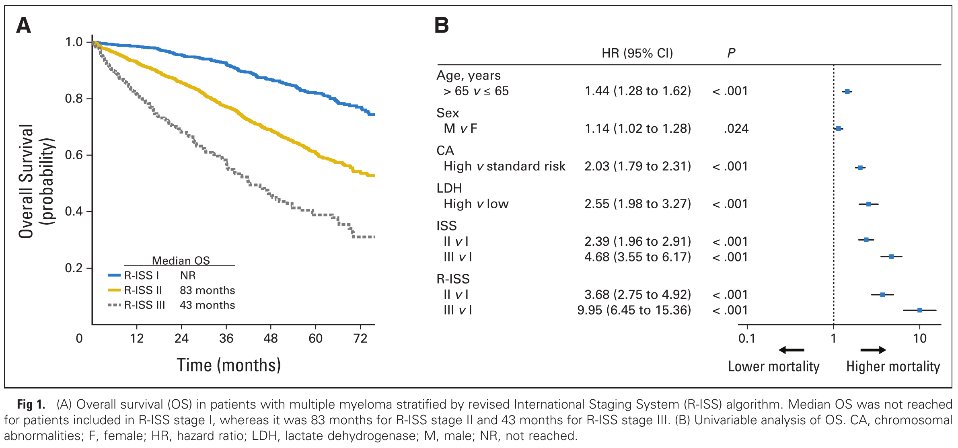
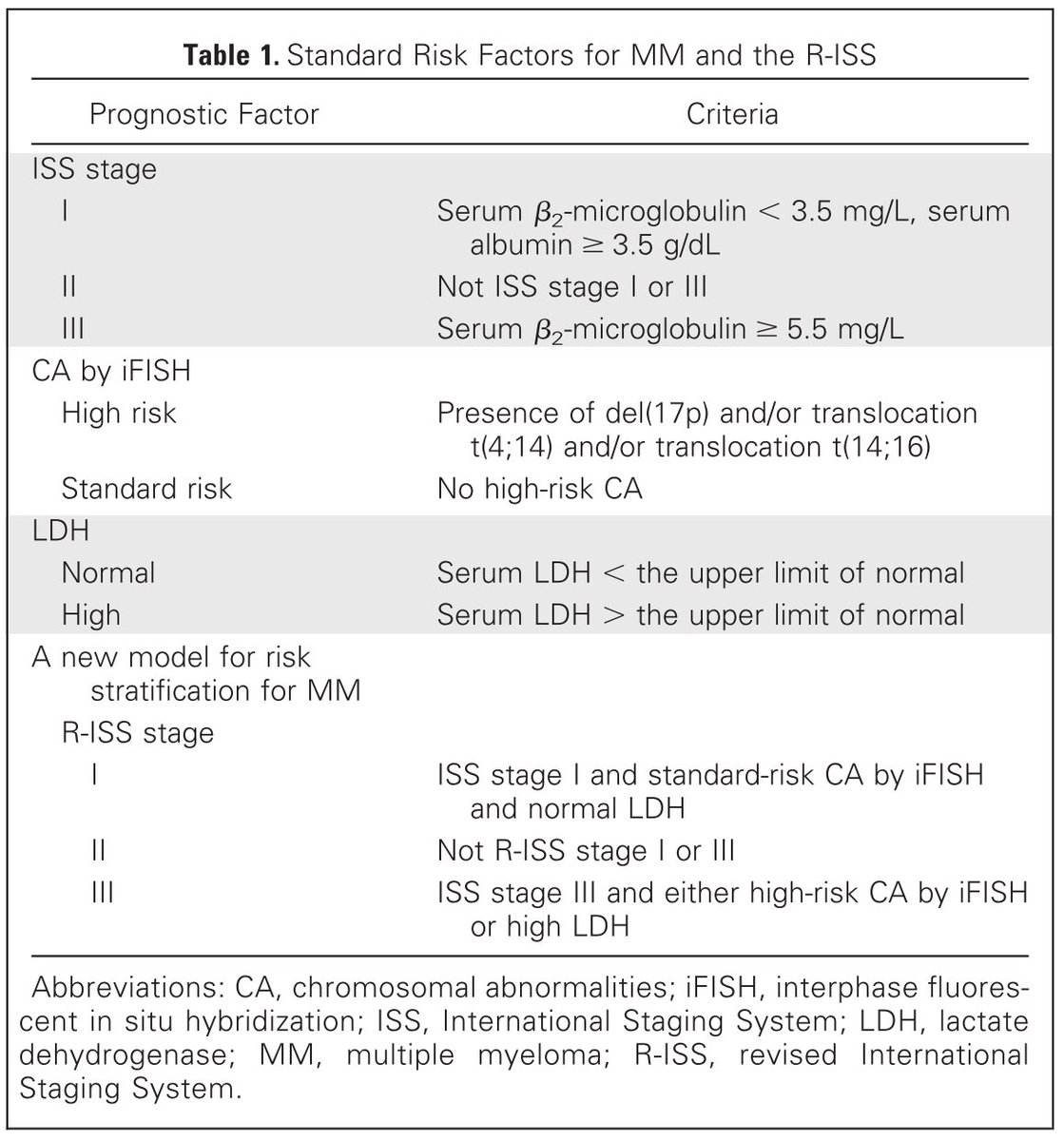
These labs were found to be abnormal in many pts and this combo produced a highly reproducible risk model.
Other factors were also prognostic, but not used for various reasons.
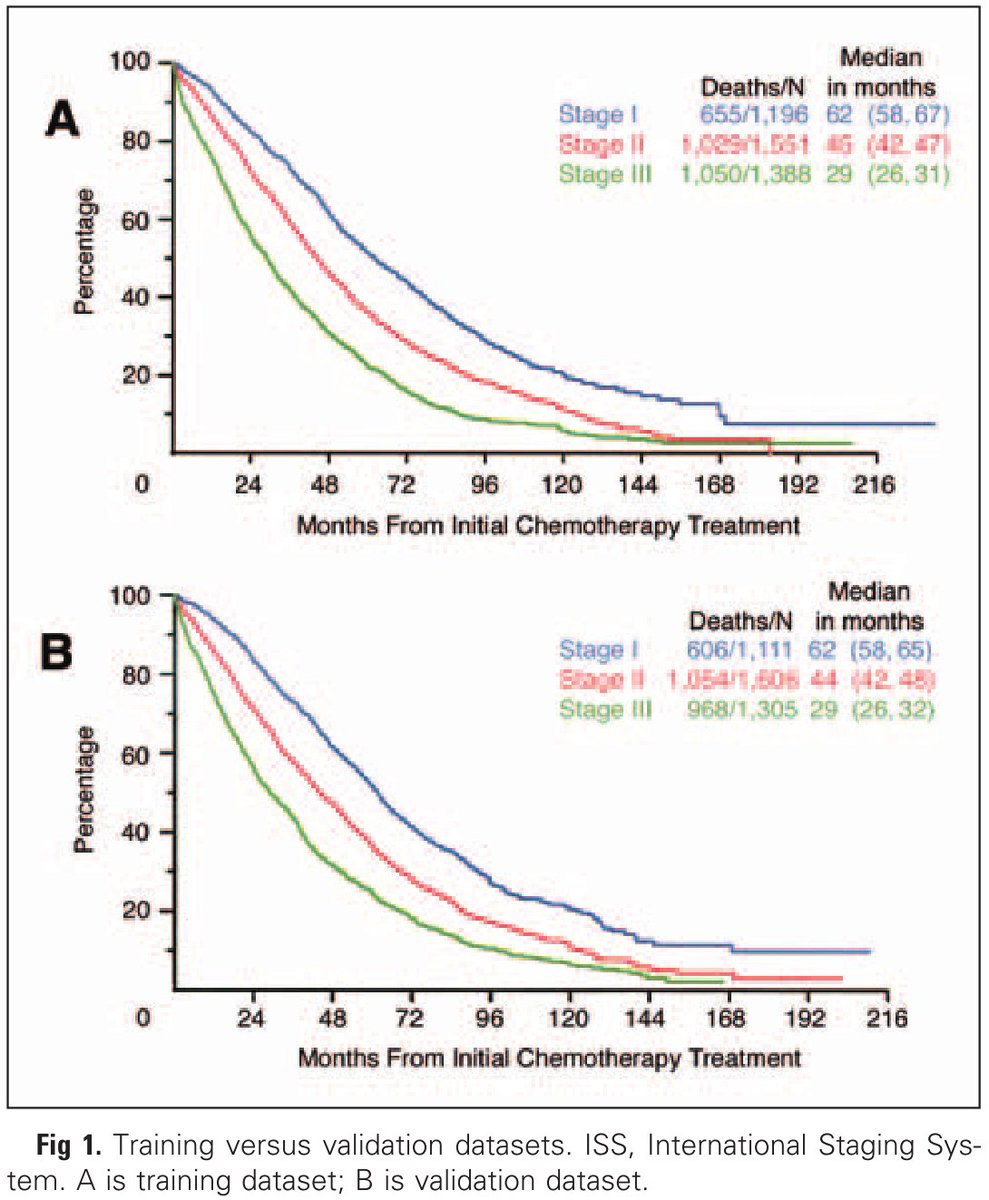
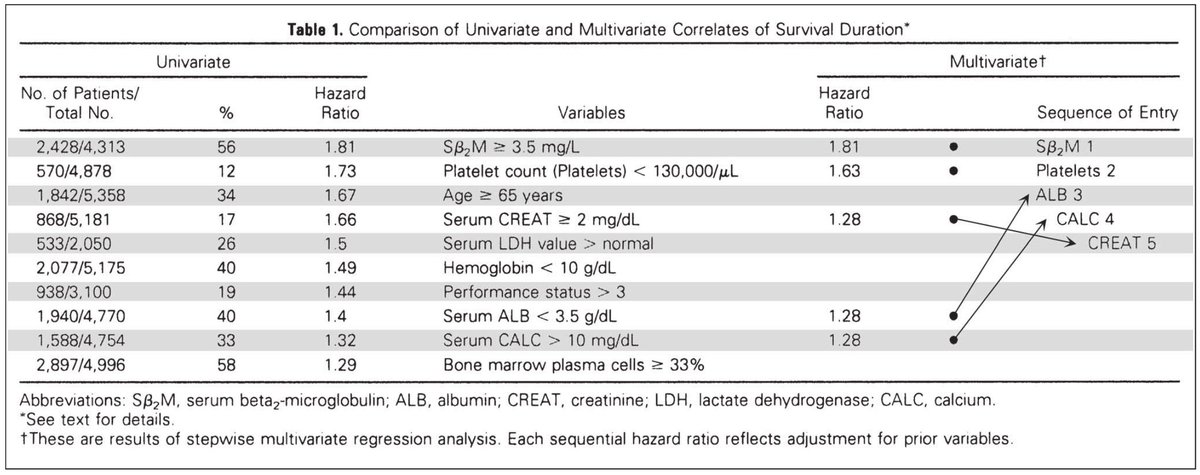
Of course, albumin levels are also be affected by other factors (i.e. nutritional status, comorbidities) that can impact survival.
Regardless, it retained significance in the chemo era.
B2M is renally cleared, & plasma levels correlate with renal dysfunction. At one time it was even considered as a potential biomarker for renal function tinyurl.com/yymfvm6f
Although B2M is still used in the R-ISS, its role as a prognostic biomarker today has been questioned.
@rubinstein_md et al. developed a new model (MCV-SS) that replaced B2M with MCV and outperformed the R-ISS in that cohort. tinyurl.com/yy5on9a8
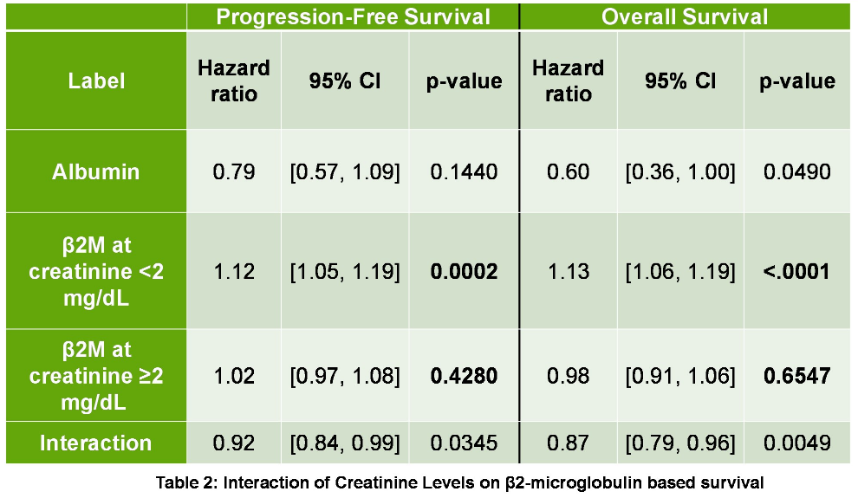
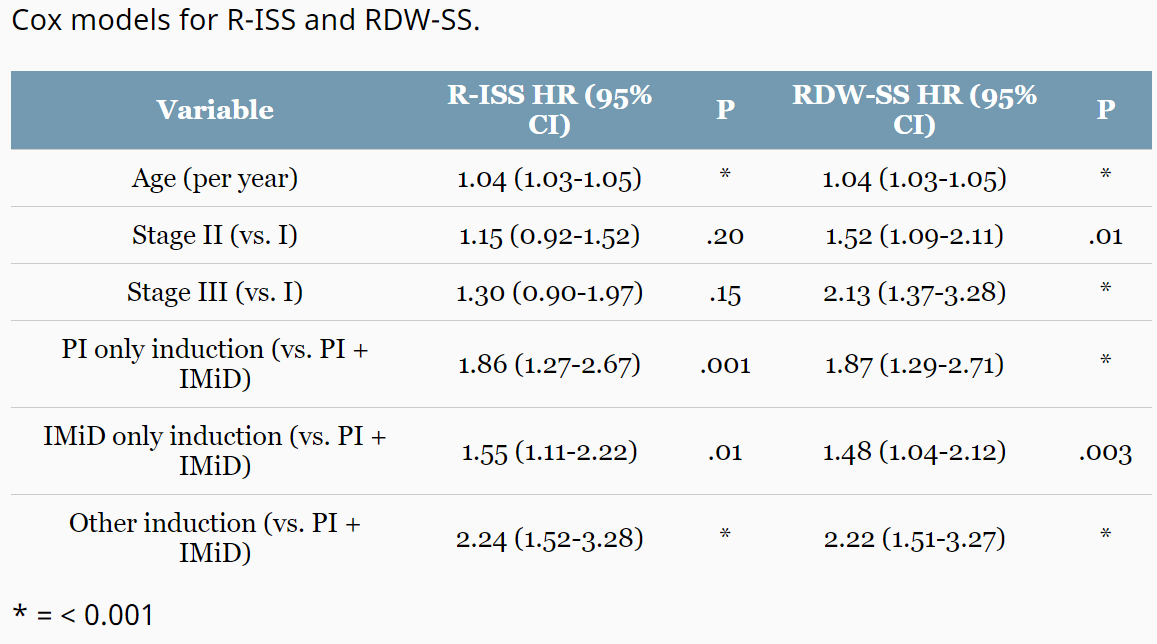
The R-ISS has built upon the ISS by incorporating LDH and cytogenetics as prognostic factors in MM.
Even among patients treated with current SOC regimens, LDH retains its impact, as demonstrated by the Emory group (Joseph, et al). tinyurl.com/y6foz7cu
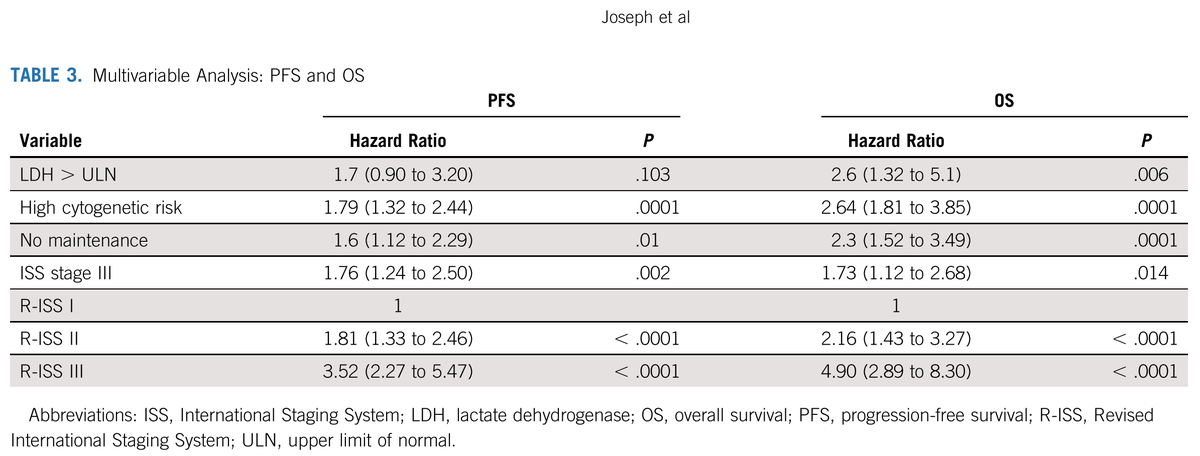
LDH leaks into the bloodstream upon cell death (think ischemia, tumor lysis). In heme malignancies, this is typically due to high cell turnover, cell proliferation, active disease.
Could LDH also be upregulated in the setting of BM hypoxia, which is known to⬆️VEGF, IL-6, EMD in MM?🤔
It is likely that with new technologies, we will improve our understanding of the molecular biology and pathways leading to HRMM. This, coupled with risk/response-adapted treatment approaches, will hopefully help to improve outcomes for pts with HRMM. #mmsm #MedTwitter

